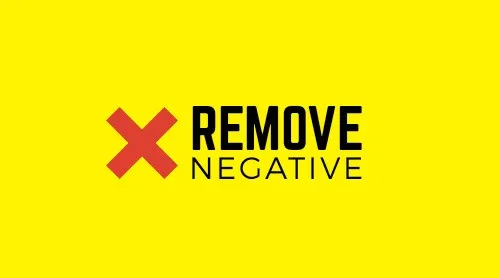Deleting negative info from search engine is illegal
On August 31st, Shanghai City Changning District People’s Court released a news in relation to a contract dispute: the contract for providing service for suppressing negative information on search engines is invalid.
Background of the case
The plaintiff is an online service provider, that supplies search engine optimization and online communication services. The Defendant has entered into a contract with the Plaintiff, where agreed that the plaintiff entrusted the defendant to provide technical services including Baidu optimization, Baidu bidding, Zhihu optimization and other services, and the service fee was RMB 67,300. A clause for “negative information suppression” is also agreed in the contract: “Search engine optimization for specified keywords to achieve no significant negative content on the first 5 pages of Baidu", "Negative information suppression period of 30 days". The service fee was partially paid, and the Plaintiff was claiming breach of contract due to Defendant’s failure to perform the service on suppressing negative information.
Plaintiff’s Argument
The Defendant did not perform its obligation agreed in the contract, achieving no obvious negative content of the brand on the first 5 pages of Baidu, which constitutes a breach of contract, and should bear the corresponding liability for breach of contract according to the law.
Defendant’s Argument
Both parties did not explicitly agree on the timeframe to achieve the "negative information suppression" optimization service, and the contract only agreed on “no obvious negative content” on the first 5 pages of Baidu, instead of “no negative content”. Up to the date of the plaintiff's lawsuit, the Defendant has completed the keyword optimization of the official website and the opening of the Baidu bidding account according to the contract, and only two of the five negative contents requested by the plaintiff have not been successfully suppressed. There is no breach of contract in the performance of the contract.
Both parties agreed that unlike “deleting negative information”, suppressing negative information is not forbidden by the law[1] there are 3 methods to achieve it:
-
Organizing the publication of positive information about a brand and increasing the number of clicks and readings so that the positive information is included in Baidu and displayed in the front of the search results, while the negative information is accordingly postponed.
-
Complaining to the publishing platform of the negative content and requesting the platform to disconnect the link or lower the weight of the negative content so that it cannot be displayed in the search results or the display position is set back.
-
If the aforementioned platform does not follow the complaint requirements, the negative information can be linked to other content that has been downgraded through technical operations, so that the two are bundled and hence achieve the effect of downgrading and postponing the negative content.
The court did not support any of the arguments, but ruled that the clause for negative information suppression is invalid due to a violation of basic principle of civil law.
First of all, the purpose of "negative information suppression" is against the basic legal principle of honesty. As a new technology, the Internet has the characteristics of freedom, openness and sharing.
Internet search engine service can let the public know the real situation of civil subjects or related markets more conveniently and comprehensively, while the purpose of "negative information suppression" clause is to do the opposite, instead of letting the real situation be more accurately exposed in front of the public, it interferes artificially for private interests through an organized process.
It allows the negative information of a specific civil subject to appear after “dressed up” so that it is not easily detectable or even difficult to trace. Such a purpose is already undermining the basic rules of civil behavior, and is aiming to undermine the core values cherished by society as a whole.
Second, the “negative information suppression” clause violates the basic principles of the Consumer Protection Law and the Anti-Unfair Competition Law.
On the one hand, for consumers, whether their right to information can be truly protected and whether Internet search engines can effectively provide information search services for consumers depends on whether the relevant information itself is true and accurate, but also closely related to whether such information can be properly known and accessed by consumers.
In this case, among the three methods of “negative information suppression”, except for the complaints to the platform, which are justified by law and objectively, the other two methods are either “upgrading the positives” or “downgrading the negatives”, they are obviously artificially interfering in the normal ranking of search engines, rendering consumers incapable to get comprehensive information on the products/services, and may even mislead consumers, thus affecting the formation of the true will of consumers, and the corresponding decision-making.

On the other hand, both positive and negative information are essential elements of a healthy market. A rational market player will learn from the positive evaluation to better serve consumers, and will also learn from the negative evaluation to correct mistakes.
However, “negative information suppression” is the intentional suppression of negative information that should be known to the public through behaviors other than honest management, forming “goodwill” that deviates from objective facts, gaining a competitive advantage improperly, which is detrimental to other competitors and the order of market competition. It is detrimental to the formation of a unified, open, competitive and orderly market system.
Again, the “negative information suppression” behavior will damage the rights of search engine service providers.
The credibility of search engines is mainly reflected in the comprehensive, objective, neutral and accurate display of market information and market evaluation to Internet users. To maintain the normal ranking of the search engine, one shall not change the ranking by means other than those permitted by law, which is also to realize the basic value of the search engine.
The “negative information suppression” is achieved by improper means like “upgrading the positives” or “downgrading the negatives”, so as to change or even distort the search engine ranking, misleading the search engine users, such behavior will certainly damage the credibility of the search engine service providers and business reputation.
The court also commented in the news, that the service for “negative information suppression” seriously affects the public's normal, objective and comprehensive access to information, violates the principle of honesty, infringes on consumers' right to be informed and the legitimate rights and interests of search engine service providers, and undermines the fair and orderly market competition and public order in Internet space. It is not conducive to the creation of a clear Internet space, and shall be deemed invalid according to law.


